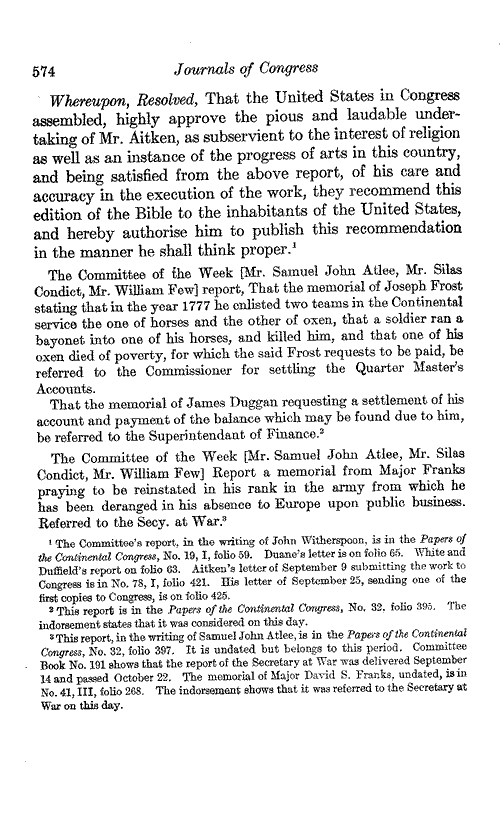David Barton is again claiming that living according to his understanding of the Bible will lead to a long life. This time the issue is retirement. He says since the Bible doesn’t talk about it, then Christians shouldn’t retire because it is a pagan concept. Watch:
[youtube]https://youtu.be/Fu_dNSvRLW4[/youtube]
He claims that Deuteronomy 6:24 promises good consequences to people who do what God wants us to do. So if there are negative consequences from some activity or practice (e.g., retirement) as demonstrated by science, then God must not want us to do it.
He then quotes unnamed actuaries as saying that people live 2.4 years past retirement on average. He says the statistics are there that show God did not design us for retirement.
Barton’s citation of 2.4 years is meaningless in absence of knowledge of the health status of the population involved or the average age of retirement in the population. Does this figure combine men and women? Blue-collar workers and people in professions? Furthermore, we don’t know how this figure compares to people who never retire. Misusing numbers, we could make Barton look pretty bad because those who never retire live zero years beyond retirement.
Studies of mortality and retirement are mixed, leaning in more recent work toward the finding that retirement has a beneficial effect on health and mortality. However, in some populations, people seem to have more trouble when they retire. I am going to look at two representative studies, one in favor of early retirement and the other demonstrating that retirement may lead to other problems which can shorten life.
The first study is titled “The Causal Effect of Retirement on Mortality: Evidence from Targeted Incentives to Retire Early” and was published in August 2013 (link). To help me understand the nuances of the study, I contacted co-author Jochem Zweerink at the University of Amsterdam. The study’s abstract says:
This paper identifies and estimates the impact of early retirement on the probability to die within five years, using administrative micro panel data covering the entire population of the Netherlands. Among the older workers we focus on, a group of civil servants became eligible for retirement earlier than expected during a short time window. This exogenous policy change is used to instrument the retirement choice in a model that explains the probability to die within five years. Exploiting the panel structure of our data, we allow for unobserved heterogeneity by way of individual fixed effects in modeling the retirement choice and the probability to die. We find for men that early retirement, induced by the temporary decrease in the age of eligibility for retirement benefits, decreased the probability to die within five years by 2.5 percentage points. This is a strong effect. We find that our results are robust to several specification changes.
In non-academic speak, Zweerink told me, “we indeed find that retirement has a beneficial effect on longevity.” He also told me that there is a positive effect on the spouse of men who retire early. Please note that this study included data on the entire population of the Netherlands.
On the flip side, there is a 2010 study by Andreas Kuhn and colleagues from the University of Zurich which finds some clues about why some studies might find negative consequences from retirement. This study’s abstract reads:
We estimate the causal effect of early retirement on mortality for blue-collar workers. To overcome the problem of negative health selection, we exploit an exogenous change in unemployment insurance rules in Austria that allowed workers in eligible regions to withdraw permanently from employment up to 3.5 years earlier than workers in non-eligible regions. For males, instrumental-variable estimates show that retiring one year earlier causes a significant 2.4 percentage points (about 13%) increase in the probability of dying before age 67. We do not find any adverse effect of early retirement on mortality for females. Our analysis of death causes suggests that male excess mortality is concentrated among three causes of deaths: (i) ischemic heart diseases (mostly heart attacks), (ii) diseases related to excessive alcohol consumption, and (iii) vehicle injuries. These causes account for 78 percent of the causal retirement effect (while accounting for only 24 percent of all deaths in the sample). About 32 percent of the causal retirement effect are directly attributable to smoking and excessive alcohol consumption.
This study examined the outcomes of early retirement on blue-collar workers in Austria. For these workers, retiring early is associated with earlier death for men but not women. Breaking the results down, it appears that early retirement gives some men more time to drink, smoke, eat bad food and get in car accidents (those all could be related). In other words, if you are thinking of retiring early so you can pursue an unhealthy lifestyle, then better to stay working. However, many other people retire because of pre-retirement health concerns and their demise can’t be blamed on retirement.
Reality isn’t as neat as David Barton’s poor exegesis of Deuteronomy 6:24. Those verses were given to Israel as a people and not you and me as individuals. And when one looks at all the data, the complexity is clear. For instance, in the Austrian study, women have different outcomes than men. Do the different outcomes mean that women can go against Barton’s interpretation of the Bible and do well, but men can’t?
Many studies show that retirement can be beneficial depending on what a person does. Many people retire from their job but don’t stop being active. They engage in more leisure if they have the means, but they often work part-time, or volunteer. I have been in churches where retirees carry on much of the work of the church because they have the time to do it. My plan is retire from teaching and then do something else. Maybe I’ll get a degree in history. I’ll surely have more time to debunk bad history if I am still interested in doing that then. If Barton never retires, then I will have no shortage of things to do.

